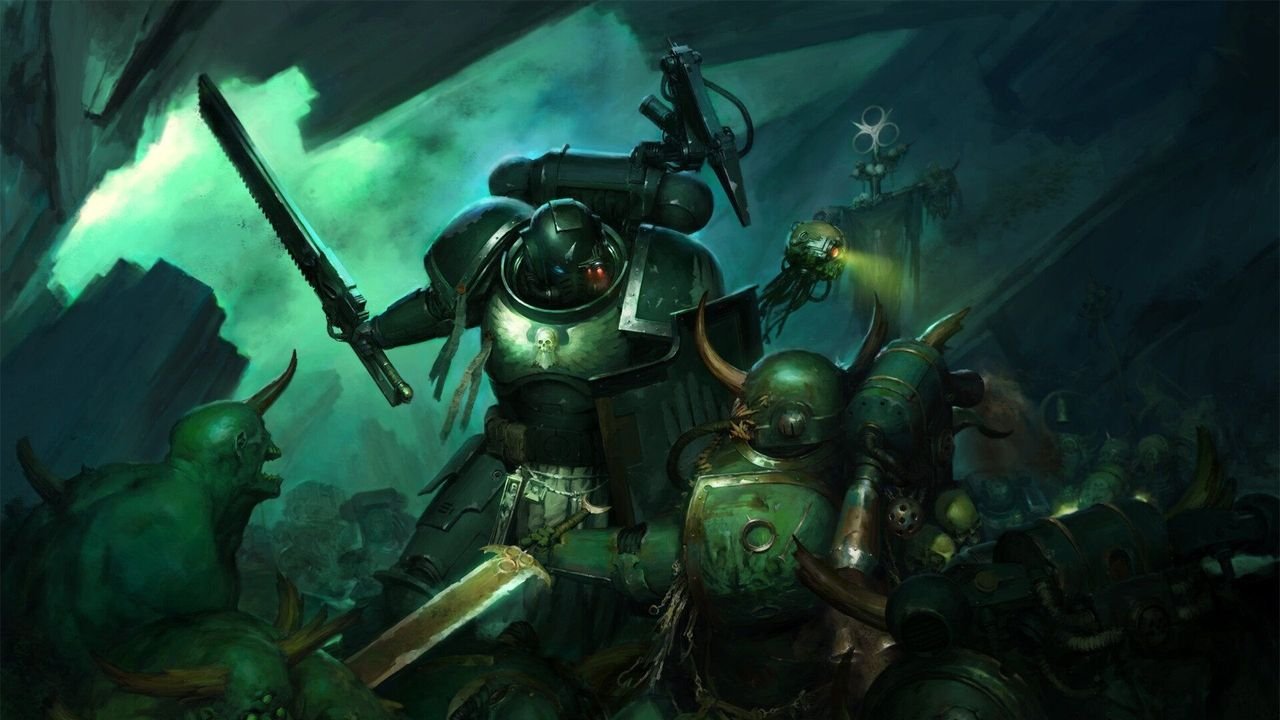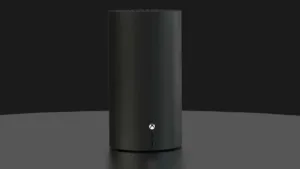Gareth Edwards Never Meant to Make Franchise Films Like Rogue One & Godzilla. Now He’s Back on Track
For what it’s worth, Gareth Edwards didn’t mean to focus on established IP for years. But when Godzilla and Star Wars come knocking, you answer.
The director tells IGN as much at San Diego Comic-Con in a candid conversation while promoting his upcoming movie The Creator, which hits theaters on Sept. 29. The film, which stars John David Washington as an ex-special forces agent on a mission to hunt down a rogue AI, is Edwards’ first original movie in more than a decade. While he first gained recognition for his 2010 original sci-fi horror feature Monsters, he would then move onto 2014’s Godzilla, and then 2016’s Rogue One: A Star Wars Story.
“I never meant to do IP,” Edwards tells me after a visit to IGN’s SDCC studio. “I honestly thought what I would do with my career, if I had one, is my own ideas, one after the other. And then I just got offered this amazing, lottery-winning thing of getting to do Godzilla, teleporting straight to the Super Bowl final.”
“And it was like, ‘Oh, I can’t turn this down. I’d regret it for the rest of my life.’ And so I did that and I was like, “Okay, that’s it,’ “ he continues. “And then, someone goes, ‘Do you want to do Star Wars?’ And it was the only thing anyone could have said that would’ve made me go, ‘Okay.’“
He describes his move back to original movies as getting “back on track” – although, he’s sure to note, he admits he’s “full of shit” and there’s still a number of franchises he’d love to get his hands on if given the opportunity.
But even with that admission, Edwards says he’s “sad” about the lack of original movies that take off at the box office these days. Out of curiosity, he recently looked up the top movies of 1982 and 1983, the heyday of cinema in his childhood, and noticed roughly 80% of those movies were “completely original.” When he looked up last year’s top 10, “I don’t think any of them were.”
“Studios, I guess, have gotten gun-shy. People seem to be flocking to all the franchises and not supporting original ideas as much.
And for what it’s worth, IGN checked his math and he’s right: a quick look at last year’s top 10 movies worldwide on Box Office Mojo garners a list of sequels and superhero franchises.
“I personally think that’s really sad,” he says. “I think we’ve sort of got off track a little bit, and franchises are all born from an original idea. And so what’s happened is studios, I guess, have gotten gun-shy. People seem to be flocking to all the franchises and not supporting original ideas as much.”
It’s true, as Edwards notes, that studios follow the money. Just recently, Paramount Pictures’ CEO Brian Robbins has said he’s jettisoned animated movies that he doesn’t see as commercial in favor of doubling down on franchises; Warner Bros. has continued to build up IP like new projects with Harry Potter and Lord of the Rings (even though its DC movies like The Flash have seen less success); and Disney, which is distributing The Creator through 20th Century Fox, has several years of Star Wars and Marvel down the pipeline.
And while franchises aren’t inherently a bad thing (Edwards’ Rogue One, for example, is one of the better-reviewed Star Wars projects of the past decade, and spawned the critically acclaimed Disney+ series Andor), Edwards does have a plea for those looking for more original movies.
“All I’d say to people is, it doesn’t matter what you like, it can be anything, please go see it when it comes out,” he says. “Because that’s how these decisions get made. And you forever go to meetings and say, ‘What about this? What about that?’ They’ll point to a previous film very much like it that didn’t make any money, and say, ‘That’s why we can’t do it. We won’t get the financing.’ “
“As audience members like myself like to complain about studios, it’s really the audience that gets the vote,” he goes on. “It’s a political system and you vote with your cinema ticket.”
‘I Had Nothing to Lose’
So, with that in mind, was The Creator a difficult pitch when Edwards started taking it to studios? “Yes and no,” he tells me. Looking back to the genesis of his idea for the movie, the filmmaker admits that he “hate[s] writing scripts” – “it’s, like, the worst homework in the world” – and the only way he can truly bring himself to do it is by shutting himself in a nice hotel and not allowing himself to leave until he’s finished.
Thailand, then, was his choice for this project, where he spent a month writing The Creator. It was while he was there that he got a text from Jordan Vogt-Roberts, a fellow Godzilla director with 2017’s Kong: Skull Island, who had heard Edwards was in Thailand and invited him to come visit him in Vietnam.
“So I just go over, just for a day, and I end up staying a week and traveling all up and down Vietnam with him and seeing imagery that I associate with, obviously, the Vietnam War and stuff, but through a sort of science fiction lens, because I had this movie in my head,” he explains. “And every time I saw things – like you’d see Buddhist monks walking towards a temple – and I’d think, ‘What if that was a robot?’ And I’d picture that imagery, and after a while, it was like watching Apocalypse Now, but set in the Blade Runner universe.”
“It was like watching Apocalypse Now, but set in the Blade Runner universe.
He then got too excited about this world that he’d created to walk away from it, but then it came time to get it greenlit.
“It’s an original IP, so that’s always tough,” he says. “There’s a lot of people that don’t have the, to be honest, the balls, or whatever you want to say, to do it. But I also had nothing to lose.”
He notes that he was supposed to be doing some other project that he didn’t specify, but he really wanted to pursue The Creator. So he didn’t tell anyone, including his agent, about The Creator; he simply organized a meeting with production company New Regency, as its president Michael Schaefer had told Edwards he would back his next film.
Edwards entered that meeting prepared, with about 50 images from concept artists designing the whole world of the film. Visually, Edwards says, it was an “easy sell.” New Regency was interested, but there was a catch.
“They were like, ‘But this sounds like a $200 million movie.’ And we were like, ‘No, no, no, honestly, we can do this for a quarter of that,’ “ he says.
With that, he continues, New Regency gave the crew around “$100,000 or something,” and they went to location scout (pre-pandemic) in six different Asian countries.
“We were location scouting, but what we were really doing is I took a camera with me and I shot a sort of 10-minute short film,” he explains.
Then they went to Industrial Light & Magic, the visual effects house founded by George Lucas, to help build out some of the imagery.
“That little thing that everyone made was so irrefutable, and it was done for so little money,” he says. “And it was like, ‘Look, we’re just going to go make the movie like this. And there’s a limit to how expensive it’s going to be.’ And so they felt like, ‘Okay, this sort of commerciality, that kind of budget’ and they took the leap.”
Once the movie was greenlit, though, they still needed to find their cast. The Creator has a pretty star-studded cast with Gemma Chan, Ken Watanabe, Sturgill Simpson, Madeleine Yuna Voyles, and Allison Janney, but at the center of it all was Washington as a man named Joshua.
When asked if the role was written for Washington, Edwards says it wasn’t, and that he has trouble writing from any other point of view that isn’t his own.
“The trick was like, ‘Oh God, I’ve got to find someone that’s a bit like me,’ but you don’t want to see me in a movie,” he self-deprecates. “No one would pay to see that.”
Even still, he wanted an actor who was relatable – not your typical larger-than-life heroic lead, but someone who the audience could see themselves in. The trouble is, by the time casting was happening, COVID-19 had hit, and it was even harder for Edwards to meet actors for this very specific vision he had.
But then came Washington, who had just starred in Christopher Nolan’s Tenet. He was among the handful of people Edwards and his team had been discussing and Edwards figures Washington caught wind of this, as he reached out “out of the blue” and asked to meet.
And when it came time to meet, Washington greeted Edwards at a restaurant in a piece of attire that was a little on-the-nose… literally.
“He was wearing a Star Wars pandemic mask,” Edwards says. “And I laughed and I half thought, ‘Is he doing this for me? This is weird,’ because of Rogue One. And he’s like ‘No, look, I’m a massive Star Wars fan. I’ve been wearing this the whole pandemic. I thought about not wearing it to meet you because it would be weird, but I didn’t want to lie.’ And we just really hit off. He’s incredibly down to earth, really humble, genuinely the nicest human being you’d meet.”
And as he drove home from their lunch meeting, Edwards notes that Washington was basically staring at him at every red light via Tenet billboards “like, ‘it’s me, right?’ “ When Edwards got home, he called his agent and told him he loved Washington, and the rest is history.
AI, Inspirations, and The One Movie Edwards Wants You to Watch
Now that the movie is finally coming out, Edwards couldn’t have predicted how timely its AI-based message would be, as Hollywood guilds like the WGA and SAG-AFTRA fight for protections against AI on the picket lines (and they’re far from the only industries concerned). Edwards set the film in the year 2070, but says if he wrote The Creator today, he probably wouldn’t have picked a date.
“I mean, whatever you try and predict, you’re going to look stupid, right?” he says. “Anything we try and say right now about AI is going to be wrong.”
“I think the thing that is not going to be wrong,” he continues, “is how fundamentally it will change society. It’s going to be on a par with the internet, possibly electricity. It’s going to be big, in good and bad ways. And obviously, I just hope we can eliminate the bad ones before we come to them.”
Obviously, the AI connection quickly drew comparisons to the Terminator series, which Edwards has previously refuted. Instead, he points to films like Apocalypse Now, Blade Runner, and Akira as inspirations for the world-building, and Rain Man, The Hit, E.T., and Paper Moon for the emotional side.
But there’s one film in particular that keeps coming up during Edwards’ press cycle for The Creator: Baraka, a lesser-known 1992 documentary that’s completely free of narration or voiceover. It follows various natural and human events on six different continents over a 14-month period.
Given that Edwards has brought it up time and time again in talking about The Creator, I simply gave him the opportunity to nerd out: what does he love about Baraka so much?
“If only one thing comes of this film, I really hope we increase the number of people that have seen Baraka.
“Apart from the studio making their money back for this movie, if only one thing comes of this film, I really hope we increase the number of people that have seen Baraka,” he says. “Why do I love it? There’s many things that cinema does that other art forms do, like books and plays. The thing that cinema does that no other art form can touch is this sort of mix of visuals kind of contrasting and complimenting music and audio, that kind of creates something that’s nearly impossible to explain to people.”
“It’s just doing something that books don’t do, that theater doesn’t do, that’s unique to cinema, which I love and it’s the whole reason I do this,” he continues. “I’m always like a truffle pig trying to sniff out those moments in a movie and get as many as I can in. And I feel like Baraka has a high score in achieving that. There’s not a single word dialogue in that whole movie. It’s like, if God made a film, he would probably have made Baraka.”
After I point out that he’s set an impossibly high bar, he admits, “it can only disappoint now that I’ve said that.” But if you watch any movie before you watch The Creator, Edwards would probably want it to be that one.
The Creator hits theaters on Sept. 29. For more interviews out of SDCC, check out our chat with Teenage Mutant Ninja Turtles: Mutant Mayhem director Jeff Rowe.
Alex Stedman is a Senior News Editor with IGN, overseeing entertainment reporting. When she’s not writing or editing, you can find her reading fantasy novels or playing Dungeons & Dragons.











Post Comment